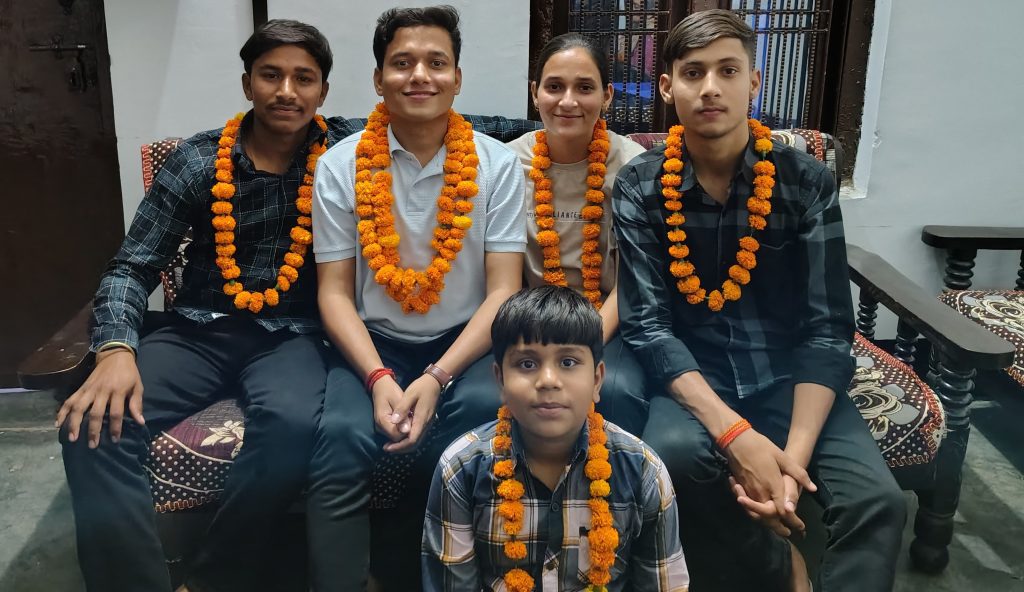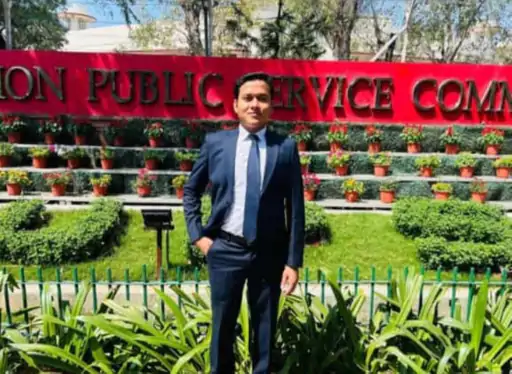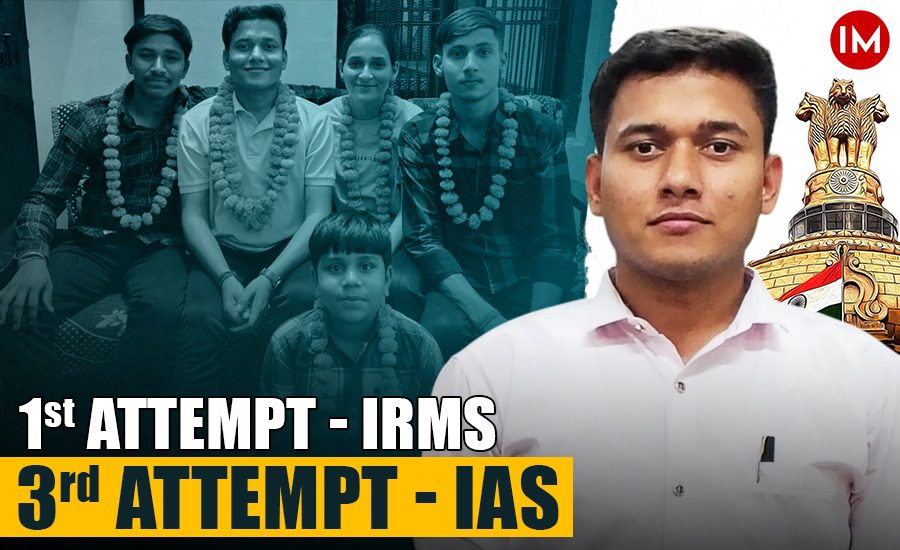“Success doesn’t come from what you do occasionally, it comes from what you do consistently.”
What does it truly take to crack one of India’s toughest and most prestigious exams – the UPSC Civil Services Examination? While answers may vary, for Vibhor Bhardwaj from Uttar Pradesh, it all comes down to two words: perseverance and consistency. He frequently emphasizes this mantra, and his journey reflects the power of these principles.
Now serving as an IRMS officer, Vibhor cleared the UPSC CSE 2024 and is set to become an IAS officer. Interestingly, he advises aspirants not to spend too many years chasing the exam – a piece of wisdom shaped by his own experience. Yet, his journey echoes Nelson Mandela’s words: “It always seems impossible until it’s done.”
A former physics postgraduate who once started his UPSC preparation from scratch, Vibhor cleared the exam in his very first attempt. His success is a shining example of how a well-crafted plan, backed by dedication and smart strategy, can lead to timely success.
Indian Masterminds interacted with Mr Vibhor to know more about his inspiring journey and some must neededa advices for aspirants.
JOURNEY SO FAR
Vibhor began his UPSC preparation journey in May 2021. In his very first attempt at the Civil Services Examination in 2022, he achieved an impressive All India Rank of 743 and was allotted the Indian Railway Management Service (IRMS). However, choosing not to join immediately, he took a one-year Extraordinary Leave (EOL) to prepare again.
In 2023, during his second attempt, Vibhor once again made it to the interview stage. But this time, he narrowly missed the final selection.
Undeterred, he returned stronger in his third attempt. In the UPSC CSE 2024, Vibhor secured an outstanding AIR 19 – finally achieving his dream of becoming an IAS officer.
Speaking about his journey, he said, “I come from a very rural background. But I had a dream – and now I’ve fulfilled it. Anyone can do it. The only things you really need are perseverance and consistency.”
He also shares a grounded piece of advice for aspirants: “Give it two to three years. If you feel it’s not working out, it’s okay to move on. There’s no point dragging it out during your prime years.”
PREPARING MAINS BEFORE PRELIMS & PHYSICS AS OPTIONAL
Vibhor Bhardwaj chose Physics as his optional subject in the UPSC exam – a natural choice, given his academic background in the subject. After completing his M.Sc., he began preparing for the Civil Services Examination from scratch, with no prior exposure to humanities subjects.
He enrolled in an online coaching program to guide his preparation. It took him some time to get through the basic books, especially since he was transitioning from science to humanities – and also shifting from studying in Hindi to reading complex humanities material in English.
“I struggled in the beginning,” he admits. “Switching from science to humanities wasn’t easy. Recalling historical and geographical terms in English was tough, but I got used to it gradually.”
One of the things that helped him during this transition was reading topper answer copies and analyzing previous years’ question papers (PYQs). He also credits his peer group for supporting him throughout. “Your study circle matters a lot. I got a lot of help from fellow aspirants – peer groups can truly make a difference,” he says.
From the very beginning, Vibhor was strategic. His initial goal was to complete the syllabus for all Mains papers (GS1 to GS4) and his optional subject before the Prelims. “I focused on finishing the entire Mains syllabus and making proper notes before December. Then I switched completely to Prelims prep,” he explains.
He also joined a test series to strengthen his preparation. Regular revision and solving PYQs were a core part of his strategy. “Test series and previous year questions are extremely helpful. They tell you if what you’re studying is actually relevant,” Vibhor adds.

BACKGROUND
Vibhor Bhardwaj hails from Bulandshahr, Uttar Pradesh. His father is a mechanical engineer, and his mother is a homemaker.
He completed his schooling up to Class 12 through the UP Board in his hometown. After that, he pursued a B.Sc. (Honours) in Physics from Hansraj College, University of Delhi, followed by a Master’s degree in Physics from the same college in 2021.
INTERVIEW
Vibhor Bhardwaj has appeared for three UPSC interviews so far, with the latest one being the most challenging and insightful. He was asked a wide range of questions that tested his knowledge across various subjects.
The board inquired about his understanding of international relations and military affairs. One member asked whether NATO is weakening or strengthening. Another questioned the idea of military conscription, asking, “Just as there is permanent military service, should military conscription also be made permanent in India, as it is in other countries?”
His service as an IRMS officer also drew attention. A member asked him about the stampede that occurred at Delhi Railway Station, seeking his views on why it happened, how it could have been prevented, and what the railway authorities are doing to address the issue now.
In addition to these technical questions, the board probed his personal interests. Vibhor’s hobby is Vedic Maths, and the interviewers were keen to understand how it has impacted his life. They asked him what he has learned from it and how it has shaped his thinking.
An analytical question followed: “If you were a leader, what three things would you do for your team?” Another question addressed ethics: “If an MLA were to threaten you to do something unethical, what would you do?”
Lastly, there was a thought-provoking question regarding federal finances: “The Centre gives funds to the states but keeps some funds with itself. Why shouldn’t the Centre transfer all its funds to the states? Why should states remain dependent on the Centre?”

SUGGESTIONS
When offering advice to future UPSC aspirants, Vibhor shared some valuable insights: “The market for UPSC preparation is vast, with thousands of resources available nowadays. It’s easy to get overwhelmed and confused. But if you’re serious about it, focus on your goal and pick just one reliable source. Seek guidance from toppers, read their genuine blogs, study their notes, and then tailor your own strategy based on what works best for you.”
He emphasized the importance of self-belief, saying, “No matter your background, believe that you can crack the exam. The key is dedicated preparation and making sacrifices. You’ll need to let go of distractions like social media and other things that can divert your focus.”
Read Also: Komal Punia: The IPS Officer Who Pursued Her IAS Dream & Conquered UPSC With AIR 6 | Exclusive

































